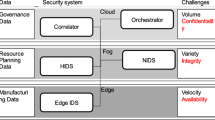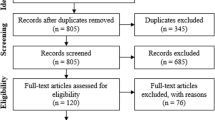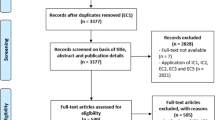Abstract
The work presented in this paper is result of a rapid increase of interest in game theoretical analysis and a huge growth of game related databases. It is likely that useful knowledge can be extracted from these databases. This paper argues that applying data mining algorithms together with Game Theory poses a significant potential as a new way to analyze complex engineering systems, such as strategy selection in manufacturing analysis. Recent research shows that combining data mining and Game Theory has not yet come up with reasonable solutions for the representation and structuring of the knowledge in a game. In order to examine the idea, a novel approach of fusing these two techniques has been developed in this paper and tested on real-world manufacturing datasets. The obtained results have been indicated the superiority of the proposed approach. Some fruitful directions for future research are outlined as well.
Similar content being viewed by others
References
Agrawal R., Mannila H., Srikant R., Toivonen H., Verkamo A!I. (1995). Fast discovery of association rules, Advances in Knowledge and Discovery and Data Mining. Cambridge, MA, AAAI/MIT Press, pp. 307–328
Axelrod R. (1984). The evolution of cooperation. New York, Basic Books
Huang Z., Li S!X. (2001). Co-op advertising models in manufacturer-retailer supply chains: A Game Theory approach. European Journal of Operational Research 3(135):527–544
Golden P!A., Dollinger M. (1993). Cooperative alliances and competitive strategies in small manufacturing firms. Journal of Entrepreneurship: Theory and Practice 17(4):266–285
Guan, Z. (1995). Application of decentralized cooperative problem solving in dynamic flexible scheduling, Proceedings of SPIE, Vol. 2620, SPIE, Bellingham, Wash., Aug., pp. 179–183
Kleindl B. (1999) Game theoretic perspective on market-oriented versus innovative strategic choice. Journal of Strategic Marketing 7(4):265–274
Lygeros, J., Godbole, D. N., & Sastry, S. (1996) Multiagent hybrid system design using Game Theory and optimal control, Decision and Control, 1996. In Proceedings of the 35th IEEE, Vol. 2, Kobe, Japan, pp. 1190–1195
Meyer, M. A., & Booker, J. M. (1991). Eliciting and analyzing expert judgement: A practical guide, knowledge-based systems(Vol. 5). London: Academic Press
Simon H. (1957). A behavioral model of rational choice. Santa Monica, Calif, Rand Corporation
Shen, W. M. (2002). Distributed manufacturing scheduling using intelligent agents, Proceedings of IEEE Intelligent Systems and Their Applications, Vol. 17, Issue: 1, Jan/Feb, London, Ont., Canada
Sterman J!D. (2000). Business dynamics. Boston, MA, Irwin McGraw-Hill
Tveit, A., Tveit, G. B., (2002) Game Usage Mining: Information Gathering for Knowledge Discovery in Massive Multiplayer Games. International Conference on Internet Computing. pp. 636–642.
Von Neumann, J., & Morgenstern, O. (1964) Theory of games and economic behavior (3rd ed.). New York: Science Editions, John. Wiley
Pham, D. T., Wang, Y., & Dimov, S. (2005). Intelligent manufacturing strategy selection. In: Proceedings of Virtual International Conference on Intelligent Production Machine and Systems, (IPROMS 2005), 4–15 July 2005, Cardiff, UK, pp. 246–252, Elsevier Science Ltd, ISBN 10: 0080447309
Pham, D. T., Wang, Y., & Dimov, S. (2006). Incorporating delay and feedback in intelligent manufacturing. Proceedings of Virtual International Conference on Intelligent Production Machine and Systems, (IPROMS 2005), 4–15 July 2006, Cardiff, UK (in publishing)
Author information
Authors and Affiliations
Corresponding author
Rights and permissions
About this article
Cite this article
Wang, Y. Combining data mining and Game Theory in manufacturing strategy analysis. J Intell Manuf 18, 505–511 (2007). https://doi.org/10.1007/s10845-007-0054-4
Published:
Issue Date:
DOI: https://doi.org/10.1007/s10845-007-0054-4




